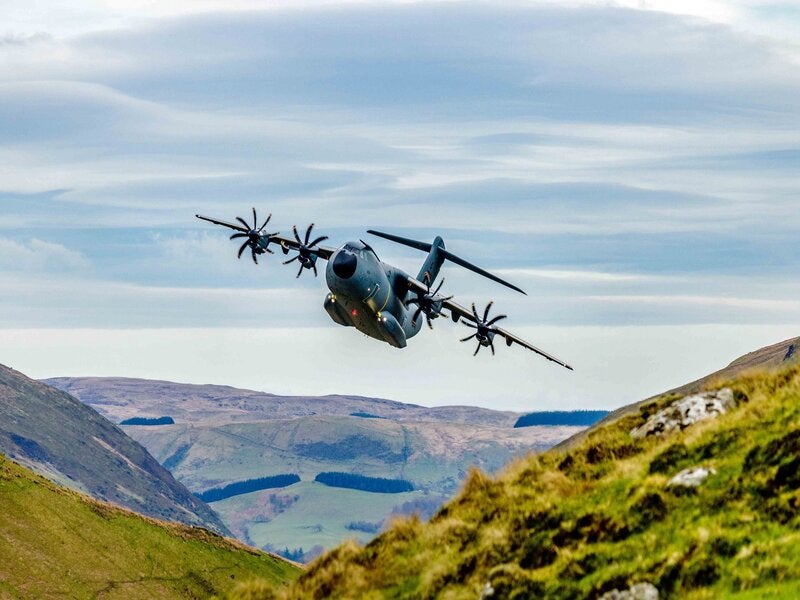
The Airbus A400M next-generation airlifter has received certification of its Automatic Low-Level Flight capability.
Last month, the certification campaign was performed above the Pyrenees and central France and involved operations down to 500ft. This included transitions from low-level flight to other operations such as aerial delivery.
This first phase of certification addresses operations with Visual Meteorological Conditions.
Scheduled to be conducted in the second quarter of next year, the second phase operation will include Instrumental Meteorological Conditions without visibility.
The Automatic Low-Level Flight feature increases the military transport aircraft’s efficiency while conducting missions.
Its capabilities enhance terrain masking and survivability. Additionally, the new feature reduces the aircraft’s detectability in hostile areas and makes it less susceptible when deployed on missions.

US Tariffs are shifting - will you react or anticipate?
Don’t let policy changes catch you off guard. Stay proactive with real-time data and expert analysis.
By GlobalDataThe A400M aircraft is capable of conducting multiple military operations, including aerial delivery, air-to-air refuelling, logistic and other specific special operations.
Last month, Airbus conducted maiden flight testing of its A400M airlifter ordered by the Luxembourg Armed Forces. The move served as a key milestone before its scheduled delivery to the Luxembourg military.
In its maiden flight, the aircraft, known as MSN104, took off from Seville in Spain and remained airborne for five hours before landing back on site.
It was used to transport essential medical supplies, equipment and personal protective equipment (PPE) to the East Malaysian states of Sabah and Sarawak. The deliveries included more than three million face masks.



